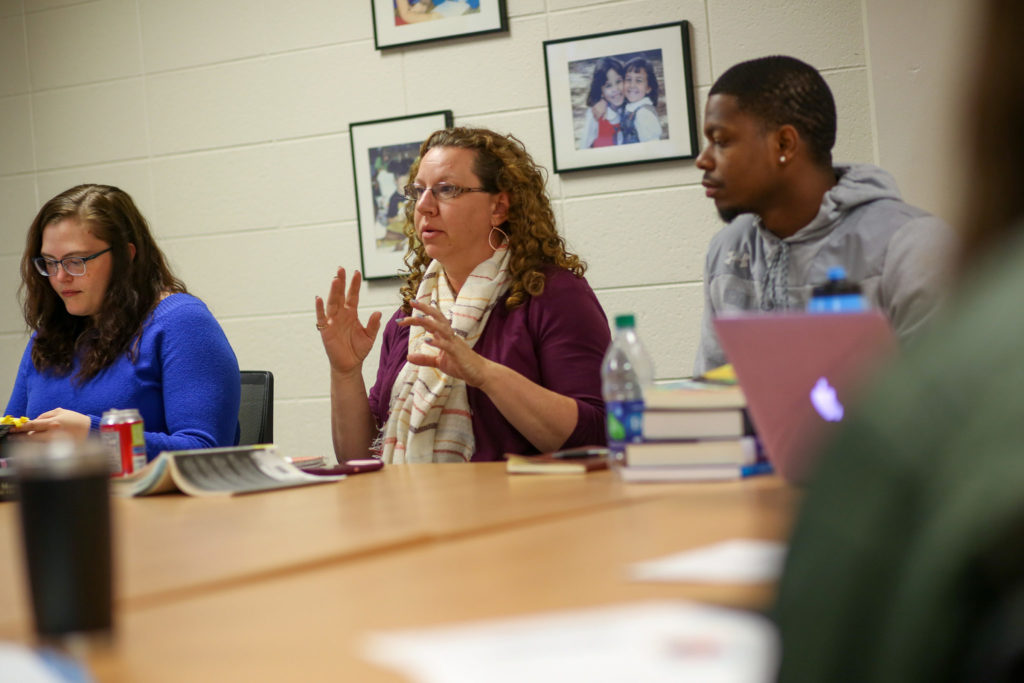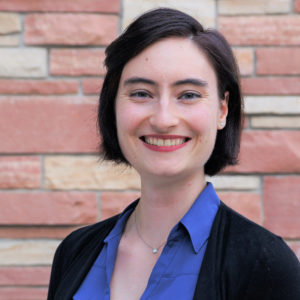 A graduate certificate offered by Colorado State University’s Adult Education and Training program is designed to support those who facilitate the adult learning experience in a variety of formal and informal education environments.
A graduate certificate offered by Colorado State University’s Adult Education and Training program is designed to support those who facilitate the adult learning experience in a variety of formal and informal education environments.
Offered both through CSU Online and on campus, Facilitating Adult Learning is a four-course certificate devoted to facilitation techniques and strategies that help teachers improve student learning outcomes. Designed to impart practical knowledge and tools, the certificate uses online, blended, and face-to-face learning options to give students both theoretical knowledge and practical skills to effectively deliver instruction in adult learning settings of all types, including college classrooms, workplace training, and adult basic education.
Molding experts into strong teachers

The FAL certificate can be used to teach adult learners across many disciplines. Katie Brown, a graduate teaching assistant in physiology at CSU, has used the knowledge she gained from the FAL courses to improve her work as a Graduate Teaching Assistant.
“The AET courses have most benefitted me in my work as a physiology GTA,” said Brown. “In this position, we have a great amount of independence to run our own breakout recitations. Because of this latitude, I was able to bring many concepts discussed in the FAL courses into direct practice in the classroom.”
Understanding that GTAs are – or are learning to be – experts in their fields, the FAL certificate allows them to learn the best ways to help others by taking advantage of that content expertise. Upon finishing the certificate, students are both better teachers and experts in their field.
“I always had a sense of what good teaching was from role models at CSU and a natural tendency to connect with students,” said Brown, “but the AET courses put words and concepts to my vague ideas.”
While completing the certificate’s core classes, Brown was able to learn concepts quickly before directly implementing them into her own courses.
“EDAE 620 [Processes and Methods] taught me about effective facilitation,” she said. “This course led me to open a dialogue with all 90 of my physiology students about what they wanted in the classroom. I bonded with these students in a way I could not have anticipated, and their feedback and honesty were amazing!”
Brown’s learning in EDAE 664 Assessment and Evaluation helped her develop – with student feedback – new ways of evaluating learning in her courses.
“EDAE 664 taught me so much about assessing my students, both for my growth and for theirs,” said Brown. “From this course I began implementing frequent, low-stakes quizzes and surveys for my students. Paired with an open and honest discussion about the results, these were a student favorite.”
EDAE 639 Instructional Design, another core class, proved helpful and timely as Brown was tasked with developing curriculum for a human anatomy outreach course while completing EDAE 639.
“EDAE 639 was an incredibly practical course,” she said. “It gave me the foundation and peer support I needed to make the course a success. Again, there are many aspects of curricular design I had previously intuited and ran blindly towards, but this course gave me concrete examples, concepts and ideas to stick to. I continue to lean on the instructional design techniques I learned in this course, and plan to use these for years to come!”
Providing experience in changing times
 As education more frequently incorporates hybrid and online teaching, the FAL certificate offers a strong foundation for teachers unfamiliar with teaching or learning online. With fluidity at its core, FAL students have the ability to make a significant impact by engaging with different teaching methods.
As education more frequently incorporates hybrid and online teaching, the FAL certificate offers a strong foundation for teachers unfamiliar with teaching or learning online. With fluidity at its core, FAL students have the ability to make a significant impact by engaging with different teaching methods.
The master’s degree in Adult Education and Training, FAL’s parent program, has been offered both online and in a hybrid format for more than 20 years, allowing FAL certificate students to experience online and blended learning themselves before translating it to their own classrooms. Students are also encouraged to focus on learning distance education techniques, if interested. In a COVID-19 world, this has already proven valuable to FAL students, including Brown, who used the knowledge she gained from FAL classes to assist in moving her physiology course online in the Spring 2020 semester.
“When we transitioned to remote learning, I did so as a facilitator – not as a student,” said Brown. “As an instructional team, we were faced with the daunting task of moving our huge – more than 600 people – and challenging physiology course online. I leaned so heavily on the structure of my online FAL courses, and even reached out to several AET professors for feedback and advice. Of course, they had lots of advice to offer.”
The process of moving a course from an in-person format to an exclusively online format was daunting for seasoned faculty. For Brown, insights gained during her AET coursework provided guideposts as she moved through the process.
“The FAL courses taught me so much about how to facilitate effectively,” she said. “My team and I worked so hard to incorporate active learning, group work, office hours, individual student meetings, and so much more into the course. Without the background the FAL courses provided for me, I would have been lost.”
“Education theories and practical knowledge will continue to be necessary as educators are moved to think in-depth about teaching practice and design,” said Leann Kaiser, associate professor and co-coordinator of the AET program at CSU. “The FAL certificate is a great tool for educators to understand best practices, theory, and application as teaching is reexamined in our current day and age.”
Adult Education and Training is a master’s specialization offered by the School of Education, part of CSU’s College of Health and Human Sciences.